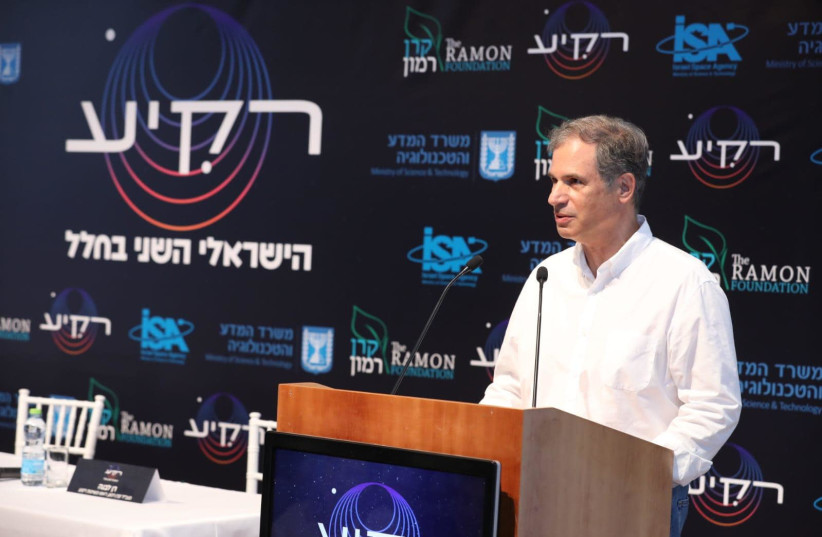Eytan Stibbe, Israel’s second astronaut, made history on Saturday when he became the first Israeli to board the International Space Station.
Stibbe, who launched on Friday on a SpaceX Falcon 9 rocket as part of Axiom mission 1 (Ax-1) – the first fully private space mission – docked at the station some 21 hours later on Saturday at around 8:30 a.m. EST (3:30 p.m. Israel time).
The Rakia mission, led by Houston-based start-up Axiom Space in partnership with SpaceX and NASA, is a historic moment for science and space travel. While other private space ventures like Jeff Bezos’s Blue Origin and Richard Bramson’s Virgin Galactic focus heavily on space tourism, the Ax-1 mission is entirely science-focused and is the first to send an all-civilian crew to the ISS to make use of its designed purpose – as an orbital laboratory.
Indeed, it is being seen by many, especially the three companies involved in Ax-1, as a major step in expanding commercial activity in space.
The scientific experiments being conducted during this mission – Stibbe alone is conducting 35 different Israeli experiments – cover a wide variety of fields of study, including testing or demonstrating the viability of certain technologies, observing scientific phenomena, studying mechanisms of theorized concepts and groundbreaking tests on food and agriculture.

But for Israel, this mission carries further significance.
Stibbe, 64, is a successful businessman and noted philanthropist. Before that, he served as a fighter pilot during his military service, achieving the rank of colonel.
It was during his service that he served alongside Ilan Ramon, the man who would later become Israel’s first astronaut during the STS-107 mission. Tragically, Ramon and everyone else on board died when the Columbia space shuttle exploded upon reentry in 2003.
In his honor, the Ramon Foundation was established, which seeks to help space entrepreneurs and ventures in Israel and establish a network for the space industry in Israel and abroad. It is a major force in Israel’s space sector, routinely working with the Israeli Space Agency and holding the annual Ilan Ramon Conference.
And it was the Ramon Foundation that, alongside the Science and Technology Ministry, helped launch Israel’s next human foray into space with Stibbe and the Rakia mission aboard Ax-1.
“Welcome to the International Space Station!” Stibbe said in his native tongue. “For the first time, we are privileged to report from here in Hebrew. Good luck to everyone and good luck to Rakia!”
This is just the beginning of Israel’s celestial ambitions. Following 2019’s Beresheet lunar lander mission, which saw Israel become only the fourth country to land a probe on the moon – albeit by crashing after a loss of communication – Israel plans to reach for the moon again with Beresheet 2.
Stibbe’s trip is another step towards the Jewish state’s future in space.
“The inspiring mission of Ilan Ramon has not been interrupted,” tweeted Science and Technology Minister Orit Farkash-Hacohen. “The journey into space continues.”
Reuters contributed to this report.
